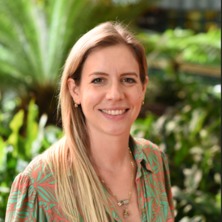
Overview
Background
I am a clinician-scientist specialising in oncodermatology, with a focus on skin cancers, translational research, and metabolism-driven carcinogenesis. My work bridges clinical dermatology and cancer research, aiming to improve patient outcomes through innovative therapeutic strategies.
I trained in dermatology and cancerology, completing rotations in oncology, radiotherapy, haematology, and oncodermatology at leading institutions, including the Institut Gustave Roussy (France). My research initially focused on energy metabolism rewiring in UVB-induced carcinogenesis, contributing to key publications (Cell Reports, 2018; Oncogenesis, 2019: Free Radicals Biology & Medicine, 2025). I leaded the MITOSKIN project, investigating metabolic and histological profiles across different stages of cutaneous squamous cell carcinoma and finished my PhD in 2022.
Since January 2023, I have been a postdoctoral research fellow at the Frazer Institute, The University of Queensland, under Prof. Kiarash Khosrotehrani. My current research focuses on solid organ transplant recipients at high risk of aggressive skin cancers. I am coordinating two major translational studies (Siroskin and CetPro), investigating targeted therapies, biomarkers, and novel prevention strategies.
My goal is to translate scientific discoveries into clinical applications, advancing personalised treatment approaches for high-risk patients.
Availability
- Dr Lea Dousset is:
- Available for supervision
Qualifications
- Diploma of Medicine, Université Victor Segalen Bordeaux 2
- Advanced Diploma of Dematology and Venereology, Université Victor Segalen Bordeaux 2
- Advanced Diploma of Oncology and Carcinogenesis, Université Victor Segalen Bordeaux 2
- Postgraduate Diploma of Palliative Care Nursing, Université Victor Segalen Bordeaux 2
- Doctor of Philosophy of Cellular Biology and Microbiology, Université Victor Segalen Bordeaux 2
Research impacts
As an early-career postdoctoral research fellow, I lead a translational research program focused on developing novel therapeutic strategies for aggressive skin cancers, particularly in high-risk populations such as solid organ transplant recipients (SOTRs). My work integrates clinical trial management, biomarker discovery, and targeted therapies to improve cancer prevention and treatment.
I have made substantial contributions to the field of oncodermatology, particularly in cancer metabolism, tumour immunology, and drug resistance mechanisms. My research has resulted in peer-reviewed publications, industry partnerships, and clinical trials, including:
- Siroskin (Phase III trial): Evaluating topical mTOR inhibitors for skin cancer prevention.
- CetPro (Phase II trial): Investigating a Cetuximab-Prochlorperazine combination for advanced cutaneous squamous cell carcinoma (cSCC).
With 40 publications indexed in Scopus (January 2025), an h-index of 14, and 906 citations, my research is widely recognised, with 58% of my papers published in top-quartile journals and a Field-Weighted Citation Impact of 1.79. I led the MITOSKIN biobank, enabling molecular profiling of cSCCs, and pioneered the first genomic sequencing collaboration between my research teams.
By leveraging genomic profiling, spatial transcriptomics, and immunotherapeutic strategies, my research is shaping new cancer treatment paradigms and improving outcomes for high-risk patients worldwide.
Works
Search Professor Lea Dousset’s works on UQ eSpace
2017
Journal Article
Trough dabrafenib plasma concentrations can predict occurrence of adverse events requiring dose reduction in metastatic melanoma
Rousset, Marine, Dutriaux, Caroline, Bosco-Lévy, Pauline, Prey, Sorilla, Pham-Ledard, Anne, Dousset, Léa, Gérard, Emilie, Bouchet, Stephane, Canal-Raffin, Mireille, Titier, Karine and Molimard, Mathieu (2017). Trough dabrafenib plasma concentrations can predict occurrence of adverse events requiring dose reduction in metastatic melanoma. Clinica Chimica Acta, 472, 26-29. doi: 10.1016/j.cca.2017.07.012
2017
Journal Article
NADPH Oxidase-1 Plays a Key Role in Keratinocyte Responses to UV Radiation and UVB-Induced Skin Carcinogenesis
Raad, Houssam, Serrano-Sanchez, Martin, Harfouche, Ghida, Mahfouf, Walid, Bortolotto, Doriane, Bergeron, Vanessa, Kasraian, Zeinab, Dousset, Lea, Hosseini, Mohsen, Taieb, Alain and Rezvani, Hamid Reza (2017). NADPH Oxidase-1 Plays a Key Role in Keratinocyte Responses to UV Radiation and UVB-Induced Skin Carcinogenesis. Journal of Investigative Dermatology, 137 (6), 1311-1321. doi: 10.1016/j.jid.2016.12.027
2017
Journal Article
Vitiligo-like lesions occurring in patients receiving anti-programmed cell death–1 therapies are clinically and biologically distinct from vitiligo
Larsabal, Maiana, Marti, Aurélie, Jacquemin, Clément, Rambert, Jérôme, Thiolat, Denis, Dousset, Léa, Taieb, Alain, Dutriaux, Caroline, Prey, Sorilla, Boniface, Katia and Seneschal, Julien (2017). Vitiligo-like lesions occurring in patients receiving anti-programmed cell death–1 therapies are clinically and biologically distinct from vitiligo. Journal of the American Academy of Dermatology, 76 (5), 863-870. doi: 10.1016/j.jaad.2016.10.044
2017
Journal Article
Genomic and viral findings in two different primary Merkel cell carcinomas in a 76-year-old woman
Dousset, L., Dutriaux, C., Taïeb, A., Chibon, F., Foulongne, V., Frouin, E., Jullié, M. L. and Jouary, T. (2017). Genomic and viral findings in two different primary Merkel cell carcinomas in a 76-year-old woman. Journal of the European Academy of Dermatology and Venereology, 31 (1), e42-e43. doi: 10.1111/jdv.13669
2015
Journal Article
A th2 cytokine interleukin-31 signature in a case of sporadic lichen amyloidosis
Dousset, Léa, Seneschal, Julien, Boniface, Katia, Charreau, Sandrine, Ezzedine, Khaled, Milpied, Brigitte, Mossalayi, Mohammad D., McGrath, John A., Lecron, Jean Claude and Taïeb, Alain (2015). A th2 cytokine interleukin-31 signature in a case of sporadic lichen amyloidosis. Acta Dermato-Venereologica, 95 (2), 223-224. doi: 10.2340/00015555-1829
Funding
Current funding
Supervision
Availability
- Dr Lea Dousset is:
- Available for supervision
Before you email them, read our advice on how to contact a supervisor.
Supervision history
Current supervision
-
Doctor Philosophy
Evaluating the impact of social determinants of health on skin cancer outcomes
Associate Advisor
Other advisors: Professor Kiarash Khosrotehrani
Media
Enquiries
For media enquiries about Dr Lea Dousset's areas of expertise, story ideas and help finding experts, contact our Media team:
